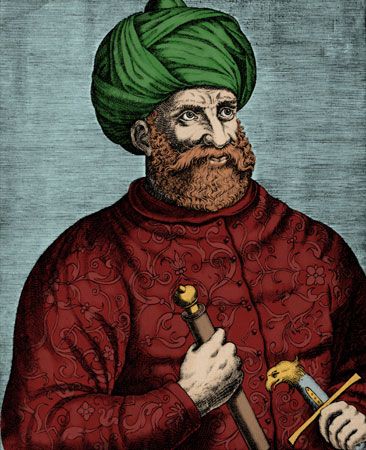Barbary pirate
- Related Topics:
- piracy
- On the Web:
- BBC Sounds - In Our Time - The Barbary Corsairs (Jan. 21, 2025)
Barbary pirate, any of the Muslim pirates operating from the coast of North Africa, at their most powerful during the 17th century but still active until the 19th century. Captains, who formed a class in Algiers and Tunis, commanded cruisers outfitted by wealthy backers, who then received 10 percent of the value of the prizes. The pirates used galleys until the 17th century, when Simon Danser, a Flemish renegade, taught them the advantage of using sailing ships.
North African piracy had very ancient origins. It gained a political significance during the 16th century, mainly through Barbarossa (Khayr al-Dīn), who united Algeria and Tunisia as military states under the Ottoman sultanate and maintained his revenues by piracy. With the arrival of powerful Moorish bands in Rabat and Tétouan (1609), Morocco became a new centre for the pirates and for the ʿAlawī sultans, who quickly gained control of the two republics and encouraged piracy as a valuable source of revenue. During the 17th century, the Algerian and Tunisian pirates joined forces, and by 1650 more than 30,000 of their captives were imprisoned in Algiers alone. Piratical practices were the cause of several wars between Tripolitania and the United States in the 19th century (see First Barbary War). The British made two attempts to suppress Algerian piracy after 1815, and it was finally ended by the French in 1830.














